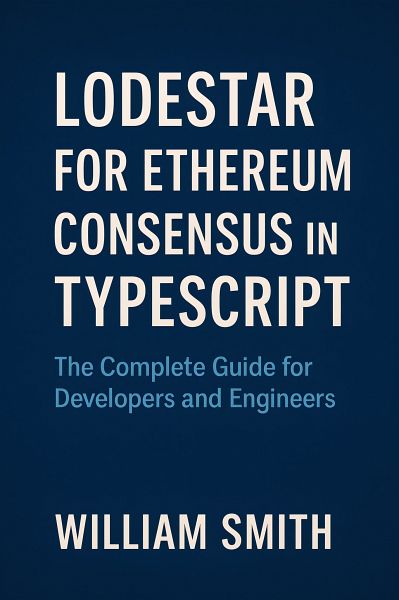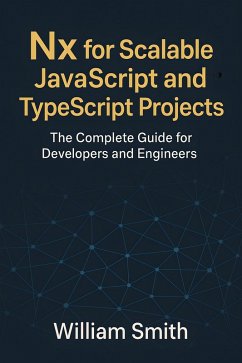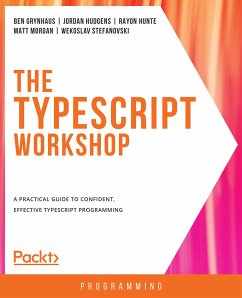
Lodestar for Ethereum Consensus in TypeScript (eBook, ePUB)
The Complete Guide for Developers and Engineers

PAYBACK Punkte
0 °P sammeln!
"Lodestar for Ethereum Consensus in TypeScript" "Lodestar for Ethereum Consensus in TypeScript" offers a comprehensive and technically rigorous guide to the design, engineering, and operation of Ethereum consensus through the lens of the Lodestar client. Unpacking the intricacies of Ethereum's transition to Proof-of-Stake, the book thoroughly examines the architecture and operational mechanics of the Beacon Chain, validator economics, security threat models, and the ongoing evolution introduced by sharding. Each chapter provides invaluable insights into key consensus algorithms such as Casper ...
"Lodestar for Ethereum Consensus in TypeScript" "Lodestar for Ethereum Consensus in TypeScript" offers a comprehensive and technically rigorous guide to the design, engineering, and operation of Ethereum consensus through the lens of the Lodestar client. Unpacking the intricacies of Ethereum's transition to Proof-of-Stake, the book thoroughly examines the architecture and operational mechanics of the Beacon Chain, validator economics, security threat models, and the ongoing evolution introduced by sharding. Each chapter provides invaluable insights into key consensus algorithms such as Casper FFG and LMD GHOST, exploring their role in finality, justification, and chain selection, while dedicating focused attention to networking, incentive structures, and critical security boundaries. Uniquely positioned at the intersection of blockchain theory and advanced software engineering, the book showcases how TypeScript's high-assurance type systems, immutability principles, and modern tooling empower robust, auditable consensus logic. Readers will delve deeply into Lodestar's modular architecture, state transition functions, validator client internals, and peer-to-peer networking via libp2p, illustrated by real-world examples and best practices. Further, the implementation-oriented chapters emphasize testability, performance optimization, serialization strategies with SSZ, and extensibility-making the content highly actionable for both protocol engineers and professional developers. Security and operational excellence are recurring themes, highlighted by chapters on formal verification, auditability, key management, and lessons learned from real-world incidents. Robust testing methodologies, benchmarking, CI/CD pipelines, and strategies for production deployment are detailed to guide teams building and operating Ethereum consensus clients at scale. Finally, the work looks ahead to emerging research in distributed validator technology, zero-knowledge proofs, and sharding, establishing itself as an essential reference for specialists shaping the future of Ethereum.
Dieser Download kann aus rechtlichen Gründen nur mit Rechnungsadresse in A, B, BG, CY, CZ, D, DK, EW, E, FIN, F, GR, H, IRL, I, LT, L, LR, M, NL, PL, P, R, S, SLO, SK ausgeliefert werden.













